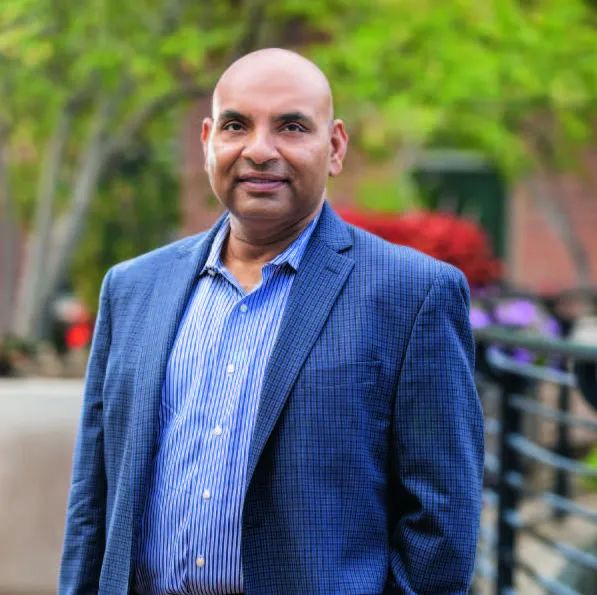Discovery at Carlson·24 Carlson School of Management faculty

We’ve all seen change happen right before our eyes as a result of the COVID-19 pandemic. But in business, some of the most important changes can happen subtly and with little fanfare.
Take, for instance, artificial intelligence. A concept that once seemed to only exist in science fiction movies is now in almost all of our homes. Slowly but surely, we’ve all welcomed the likes of Alexa and Siri into our lives to the point where we now almost depend on them on a day-to-day basis.
The same has happened at businesses across the world. AI and machine learning are no longer novelties. Many organizations, both big and small, now rely on that technology to get the job done. But should we? How do we find that happy medium where we can utilize technology while not surrendering our ability to see things in our own unique ways?
This is the crossroads where we now find ourselves. And much like the rest of the business community, how we adapt to these changes will make all the difference. As you’ll read in these pages, Carlson School of Management faculty members are at the center of these important conversations. Their shared belief that business can be a force for good is at the foundation of everything that they do.
With supply chain issues continuing to dominate the headlines, Assistant Professor Necati Ertekin wanted to see how a business could be successful with an omnichannel retailing approach that blends traditional brick-and-mortar retail with e-commerce.
Now that more people are beginning to shop for their groceries online, Professor Joe Redden is exploring how online grocery stores can support those striving to eat healthy for weight loss.
Working together has never been more important. Associate Professor Pri Shah studied how teams in all organizations could function better together when there is conflict.
I have the immense privilege of sharing research initiatives such as those above in this issue of Discovery at Carlson. You’ll also find an introduction to our newest faculty and a section that highlights a few of the many awards and honors our Carlson School faculty have won recently. As you read through this, if you have any comments on the publication, please feel free to contact me at gupta037@umn.edu.

对于我们所有人而言,新冠疫情带来的改变都十分显著。但是在业界,最重要的变革可能悄然发生、无人注意。
以人工智能为例。这个概念曾经一度只存在于科幻小说和电影中,但现在,诸如Alexa和Siri这样的人工智能已经缓慢而坚定地进入了我们的生活,几乎成为每个人的日常必需。
世界各地的企业都面临着这样的变化。人工智能和机器学习不再是新鲜事物,许多大小企业和单位都依赖这些技术来完成工作。但这是否合理呢?我们如何找到一个合适的媒介,让我们在使用技术的同时,不损失看待事物的独特视角?
我们身处一个十字路口。如何应对这些变化,决定着我们以及所有业界人士的未来。卡尔森学院的教师们正处在这个重要课题的漩涡中心,我们将持续介绍他们的研究成果。卡尔森学院的全体同仁一致认为,商业为善是我们一切努力得以实现的基础。
供应链问题是一个持续的热点。Necati Ertekin副教授正在研究,企业如何融合传统实体零售和电子商务零售、通过全渠道零售的方式获得商业成功。
目前,越来越多的消费者在线上购买食物。JoeRedden教授正在研究,网店如何帮助那些试图通过健康饮食来减肥的人群。
合作的重要性达到了前所未有的高度。PriShah副教授正在研究,各类组织中的团队如何在有冲突的情况下更有效地合作和运营。
在本期的Discovery at Carlson中,我们将向大家介绍诸如上述项目的各类研究。同时,我们还将介绍最新的教职员工团队、以及卡尔森学院近期获得的部分奖项和荣誉。如果您在阅读本期刊物的过程中有任何疑问或意见,欢迎与我联系:gupta037@umn.edu。



